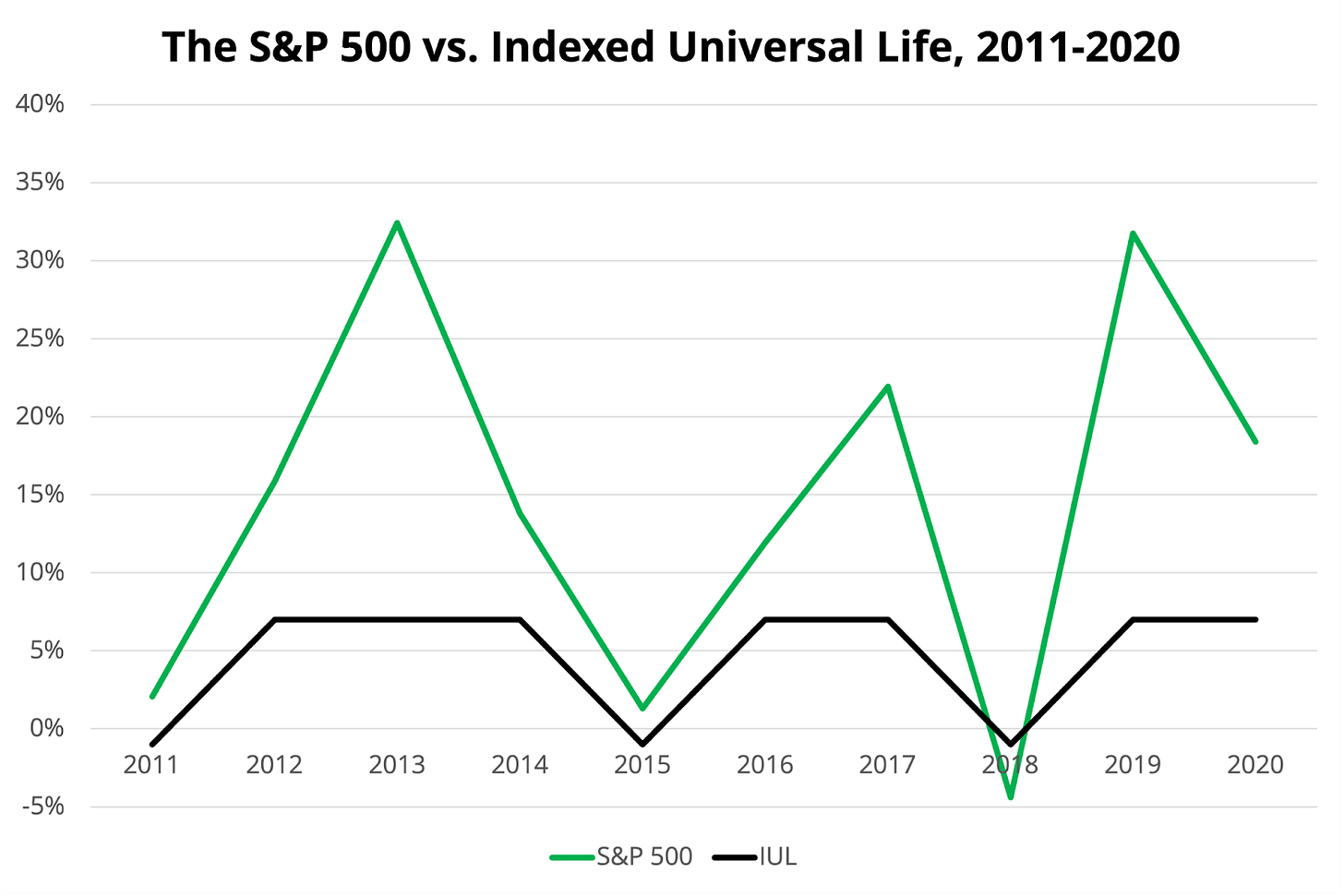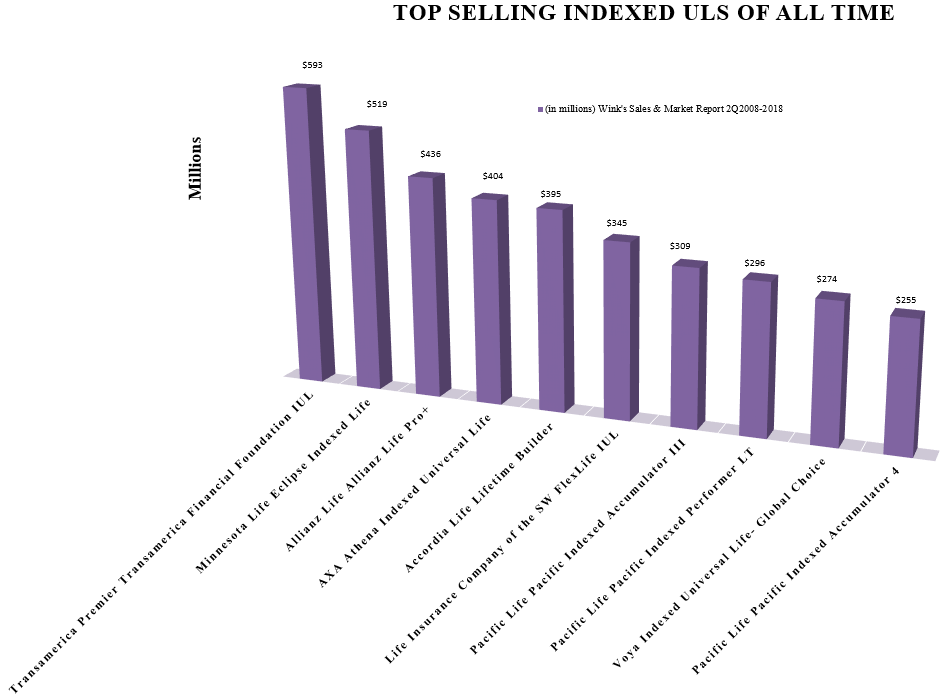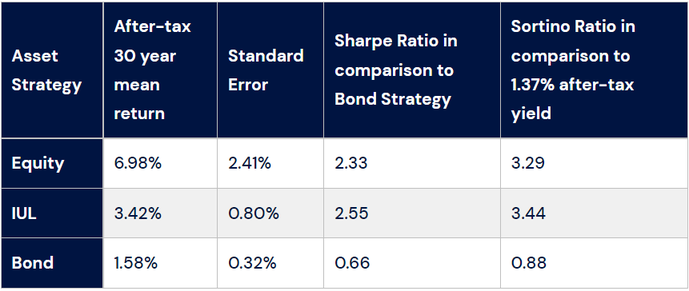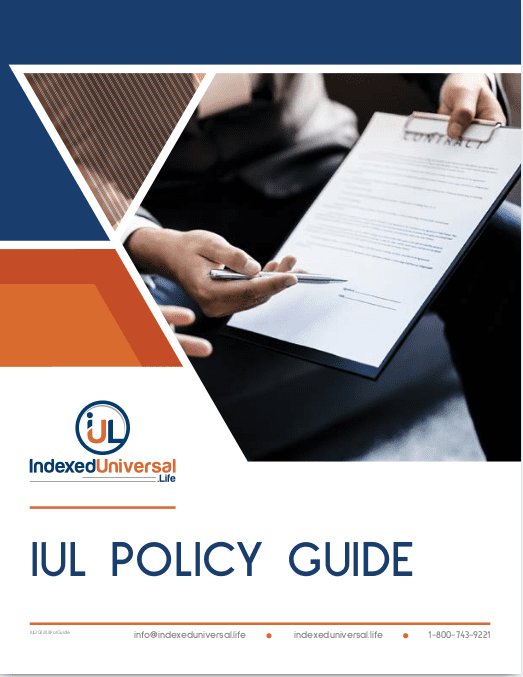All Categories
Featured
Table of Contents
1), often in an attempt to defeat their category standards. This is a straw man debate, and one IUL folks enjoy to make. Do they compare the IUL to something like the Lead Total Stock Exchange Fund Admiral Show no lots, an expenditure proportion (EMERGENCY ROOM) of 5 basis points, a turnover proportion of 4.3%, and a phenomenal tax-efficient record of distributions? No, they contrast it to some terrible actively handled fund with an 8% lots, a 2% ER, an 80% turn over ratio, and a dreadful document of short-term funding gain distributions.
Mutual funds commonly make yearly taxed distributions to fund owners, even when the worth of their fund has decreased in value. Common funds not just call for income reporting (and the resulting annual tax) when the common fund is going up in worth, yet can additionally enforce revenue tax obligations in a year when the fund has decreased in value.
That's not how common funds work. You can tax-manage the fund, harvesting losses and gains in order to minimize taxed circulations to the investors, yet that isn't in some way going to change the reported return of the fund. Only Bernie Madoff kinds can do that. IULs avoid myriad tax traps. The ownership of common funds might require the common fund owner to pay projected tax obligations.

IULs are easy to position to ensure that, at the owner's fatality, the recipient is not subject to either income or inheritance tax. The very same tax obligation reduction strategies do not work virtually too with shared funds. There are various, usually pricey, tax obligation traps connected with the moment trading of common fund shares, catches that do not relate to indexed life insurance policy.
Chances aren't extremely high that you're going to be subject to the AMT due to your shared fund distributions if you aren't without them. The remainder of this one is half-truths at ideal. While it is real that there is no earnings tax obligation due to your heirs when they inherit the profits of your IUL policy, it is also true that there is no earnings tax due to your successors when they inherit a common fund in a taxed account from you.
Iul Comparison
There are far better ways to prevent estate tax obligation issues than getting investments with low returns. Shared funds may create revenue tax of Social Protection advantages.

The development within the IUL is tax-deferred and may be taken as tax obligation totally free income by means of lendings. The policy owner (vs. the common fund supervisor) is in control of his or her reportable income, thus enabling them to lower or perhaps eliminate the taxation of their Social Security benefits. This set is great.
Here's one more minimal issue. It holds true if you get a mutual fund for claim $10 per share simply prior to the circulation day, and it disperses a $0.50 distribution, you are after that mosting likely to owe tax obligations (most likely 7-10 cents per share) although that you have not yet had any gains.
In the end, it's actually about the after-tax return, not how much you pay in tax obligations. You're also most likely going to have more money after paying those tax obligations. The record-keeping demands for owning common funds are substantially much more intricate.
With an IUL, one's records are maintained by the insurance policy firm, duplicates of annual statements are sent by mail to the proprietor, and distributions (if any type of) are completed and reported at year end. This one is also type of silly. Of training course you should maintain your tax obligation documents in instance of an audit.
Universal Life Ideal
Barely a factor to buy life insurance. Mutual funds are commonly component of a decedent's probated estate.
In enhancement, they undergo the hold-ups and costs of probate. The earnings of the IUL policy, on the various other hand, is always a non-probate distribution that passes outside of probate straight to one's named beneficiaries, and is therefore not subject to one's posthumous financial institutions, undesirable public disclosure, or similar hold-ups and prices.
Medicaid incompetency and lifetime earnings. An IUL can supply their proprietors with a stream of earnings for their entire life time, regardless of how lengthy they live.

This is helpful when arranging one's events, and transforming assets to income prior to a nursing home arrest. Shared funds can not be transformed in a similar fashion, and are often thought about countable Medicaid possessions. This is one more silly one promoting that inadequate individuals (you recognize, the ones who require Medicaid, a government program for the poor, to pay for their retirement home) need to utilize IUL rather than shared funds.
Index Universal Life Insurance Tax Free
And life insurance coverage looks horrible when compared rather versus a pension. Second, people that have cash to purchase IUL above and past their pension are going to need to be horrible at taking care of money in order to ever receive Medicaid to spend for their retirement home prices.
Chronic and terminal disease cyclist. All plans will certainly permit a proprietor's very easy access to cash money from their plan, commonly forgoing any type of surrender charges when such individuals endure a significant illness, need at-home care, or end up being constrained to a nursing home. Mutual funds do not supply a comparable waiver when contingent deferred sales charges still relate to a mutual fund account whose owner needs to offer some shares to fund the expenses of such a remain.
Universal Underwriting
You get to pay more for that benefit (cyclist) with an insurance coverage policy. Indexed global life insurance policy offers death advantages to the recipients of the IUL owners, and neither the proprietor nor the beneficiary can ever before shed money due to a down market.
Currently, ask on your own, do you actually need or desire a death advantage? I absolutely do not require one after I reach financial freedom. Do I desire one? I mean if it were low-cost enough. Obviously, it isn't low-cost. Typically, a buyer of life insurance policy pays for truth cost of the life insurance policy benefit, plus the expenses of the plan, plus the revenues of the insurer.
What Is Universal Life Insurance With Living Benefits
I'm not completely sure why Mr. Morais tossed in the entire "you can not shed money" again below as it was covered quite well in # 1. He simply intended to duplicate the very best selling factor for these things I intend. Once more, you don't shed small dollars, however you can shed real dollars, in addition to face major possibility price due to low returns.

An indexed global life insurance policy policy owner might trade their policy for a completely different plan without setting off earnings tax obligations. A common fund owner can stagnate funds from one shared fund firm to another without selling his shares at the previous (hence activating a taxed event), and buying brand-new shares at the latter, typically based on sales fees at both.
While it is real that you can exchange one insurance coverage for another, the reason that people do this is that the very first one is such a horrible plan that also after acquiring a brand-new one and undergoing the very early, unfavorable return years, you'll still appear ahead. If they were sold the appropriate policy the first time, they shouldn't have any need to ever before trade it and go with the early, adverse return years again.
Latest Posts
Guaranteed Ul Insurance
Indexed Universal Life Insurance Reviews
Universal Life Insurance Good Or Bad